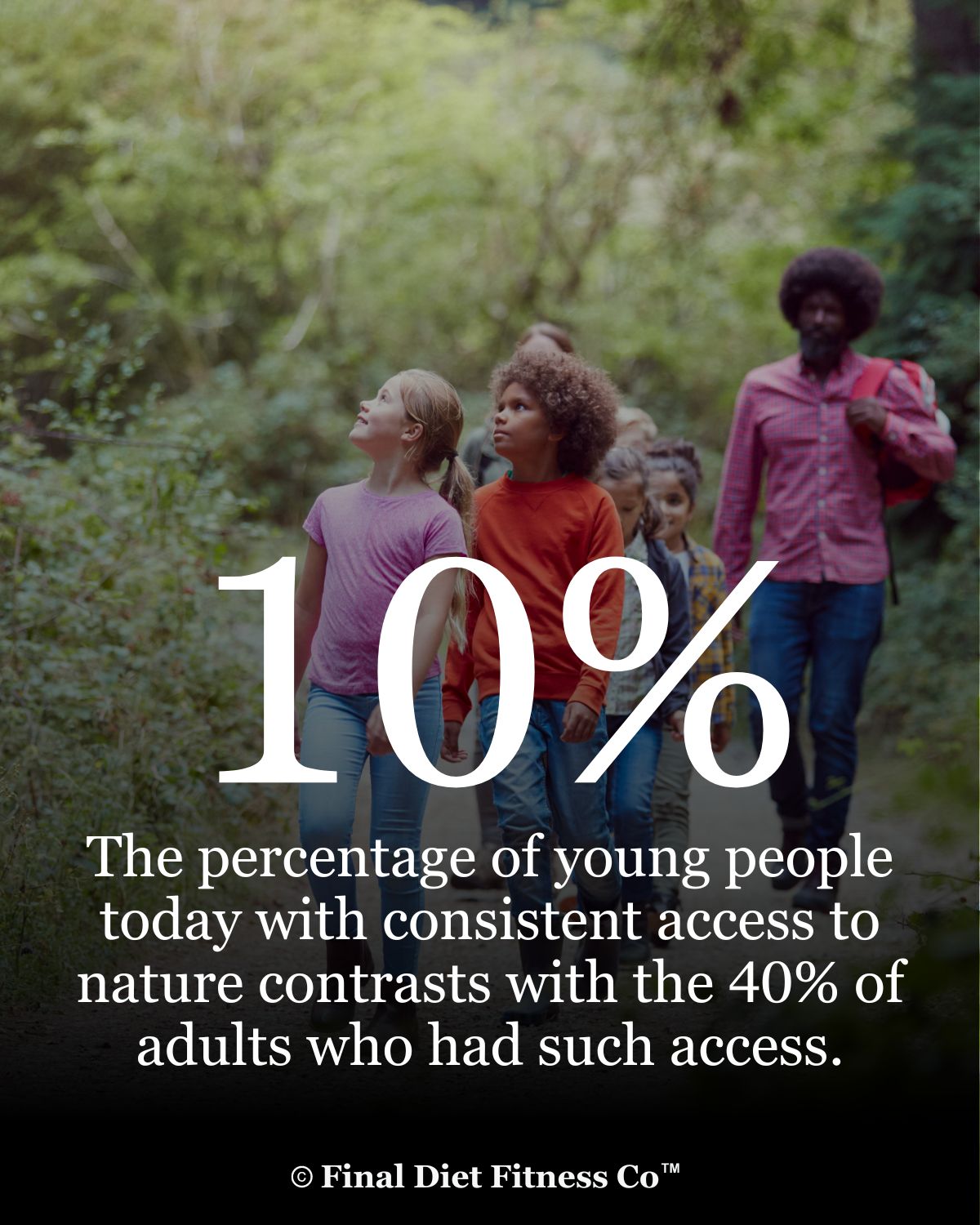
In today's technology-driven world, it’s alarming to note that only 10% of children have regular access to nature. This lack of outdoor exposure deprives them of the numerous benefits that nature has to offer. From enhancing mental clarity to boosting physical fitness, the natural world serves as a playground for growth, learning, and development. Let’s dive into the incredible advantages of getting our kids outdoors and why it’s so important for their well-being.
Mental Clarity: Nature as a Stress Reliever
Nature has an unparalleled ability to soothe the mind. Research shows that spending time outdoors reduces stress and enhances overall mood, making children feel calmer and more at ease. The natural environment offers a welcome escape from the pressures of school, technology, and daily life. Whether it’s a walk through the park or a quiet moment in the forest, nature helps kids decompress, reset, and gain mental clarity. This mental reset is essential for emotional health and can even improve focus and attention span.
Physical Fitness: Outdoor Activities for Stronger Bodies
Outdoor activities are a fun and engaging way for children to develop strength, agility, and cardiovascular health. Running, climbing, biking, or even playing a simple game of tag fosters physical fitness while helping kids build coordination and motor skills. Unlike sedentary indoor activities, outdoor play promotes active movement, which supports healthy bone growth, muscle development, and overall physical well-being. The benefits of outdoor play extend beyond exercise—kids also develop resilience and better physical endurance.
Brain Boost: Nature’s Impact on Cognitive Function
When children spend time outdoors, their brains are able to recharge and become sharper. Nature has been shown to improve cognitive functions such as focus, creativity, and problem-solving abilities. Kids who engage in outdoor exploration are more likely to develop a deeper sense of curiosity and critical thinking skills. Nature stimulates the brain in ways that digital screens and indoor environments simply can’t replicate. Whether it’s observing wildlife or discovering new environments, the outdoors ignites a child’s imagination and enhances their learning.
Social Skills: Building Connections in the Outdoors
One of the most significant benefits of outdoor play is the opportunity it provides for kids to interact with others. Whether it’s in a group activity or through games that require cooperation, nature fosters social interaction and teamwork. Children who play together outdoors learn important social skills such as communication, empathy, and conflict resolution. These outdoor interactions help build friendships and teach kids how to collaborate in ways that indoor activities often don’t. Team-building in nature nurtures emotional intelligence and encourages positive peer relationships.
Earth Connection: Cultivating Future Guardians of the Planet
By introducing children to nature at a young age, we cultivate a sense of responsibility and connection to the Earth. Early exposure to the natural world can foster a lifelong commitment to environmental stewardship. Kids who learn to appreciate the outdoors are more likely to grow up as conscious and active participants in the conservation and protection of the planet. Whether it’s through gardening, hiking, or simply observing wildlife, teaching children about nature helps them understand the importance of sustainability and the need to protect our resources for future generations.
Conclusion
Incorporating outdoor play into the daily routine of children is one of the best gifts we can offer. Nature isn’t just a place for fun; it’s a powerful tool for mental, physical, and social development. With so many benefits to gain, we must prioritize making nature accessible to all kids. Let’s nurture healthier, happier, and more connected generations by unlocking the wonders of nature’s playground.







